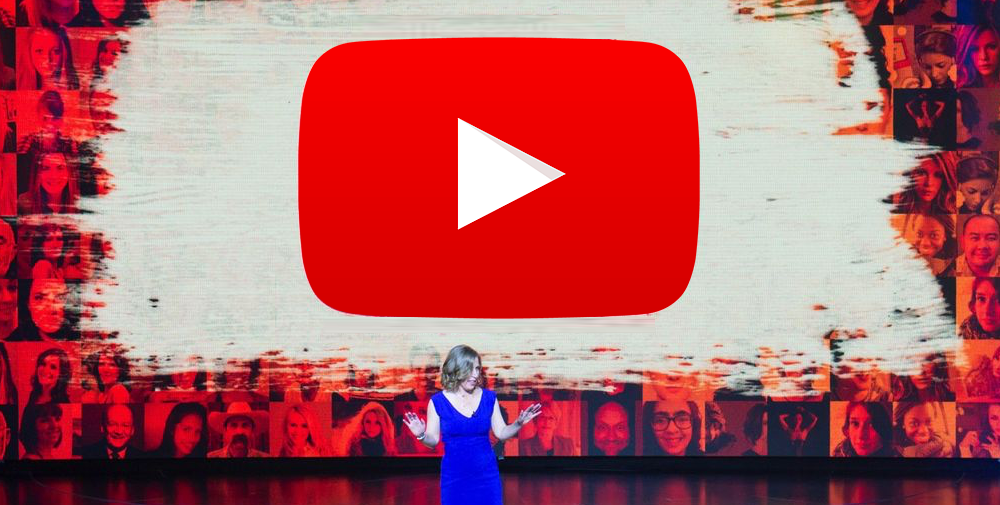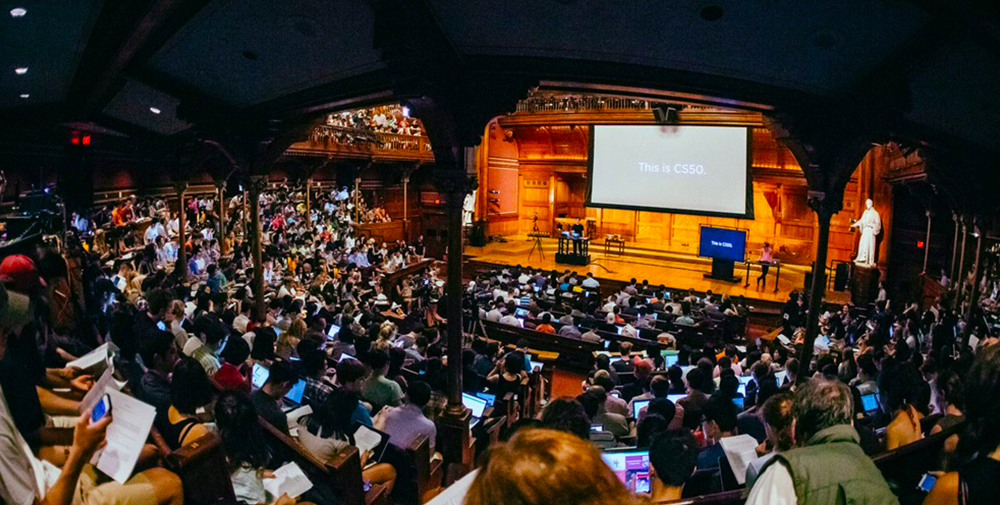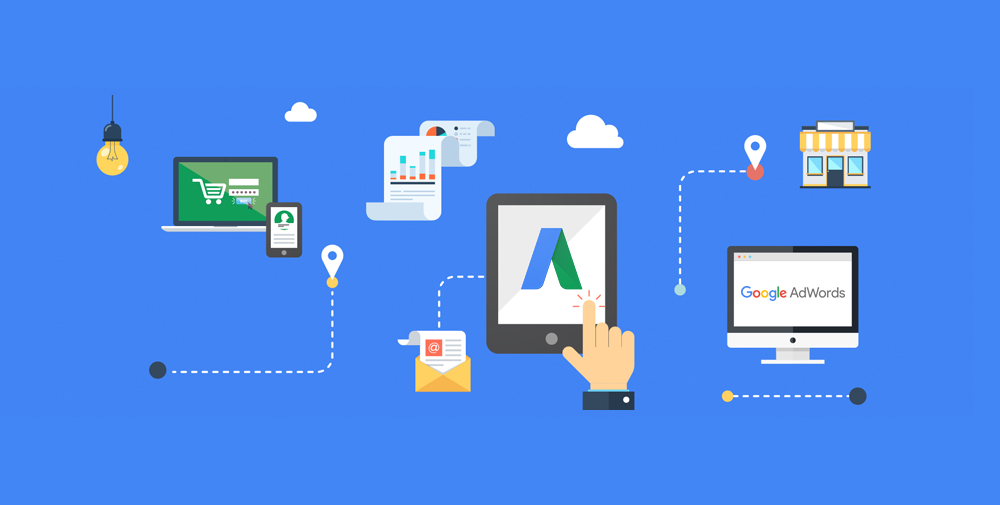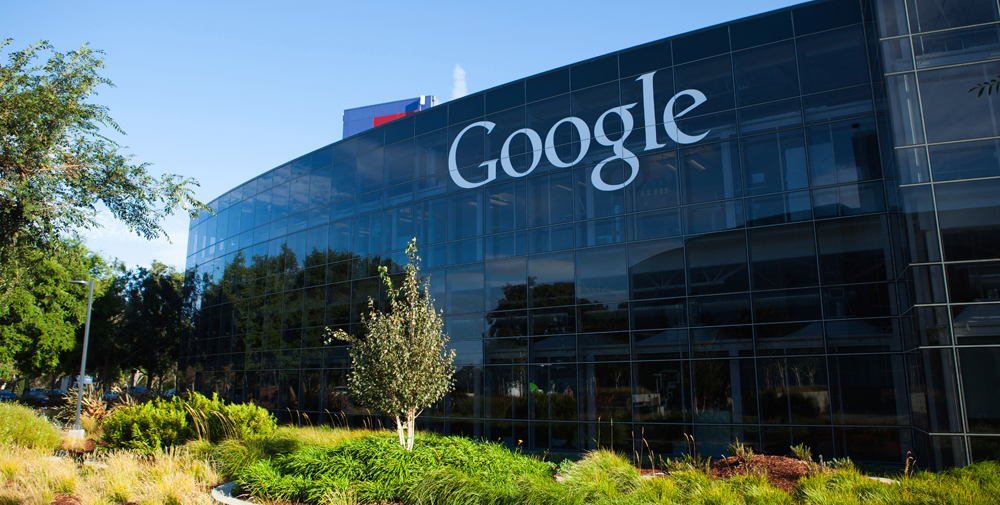Susan Wojitsky: From CS50 Student to CEO Youtube

Let's dot the “i” right away. This is not an article about the Harvard CS50 programming course itself. And not even a remake of the famous fairy tale "Cinderella" in the mood of "pass CS50 and become a super IT specialist of the highest category." Here we want to tell about a person with an unusual story, which we are interested in precisely thanks to CS50. Or rather, only about some facts from the life of Susan Wojitsky, which seemed to us interesting and to some extent instructive for those who are in IT and not only.
Does the family decide?
About people like Susan, they usually say "it’s necessary, how interestingly he / she has grown together in life." She studied at the historian, became the CEO in YouTube. Some are inspired by such facts and try to borrow valuable experience. Well, someone is looking for a dirty trick, and finds out that, they say, Cinderella was originally not at all Cinderella, but, say, a daughter of physics professor at Stanford University, who was born and raised not somewhere in the Russian outback without electricity (or Harlem on the thin end), but directly in Silicon Valley. Its conditional “history department” was located not in a small district center, but in Cambridge, Massachusetts, Harvard University. And the younger sister was the wife of Sergey Brin, the same co-founder of Google. Probably, on this line there will be those who say "oh, that's it" - and they will be wrong. Do not forget, we are talking about very pragmatic guys who created a small startup that grew up in a few years in the industry giant (or the Good Corporation, if you will) and continuing their triumph for world domination. So it is unlikely that “cronyism” in any form could play a decisive role in the appointment of Susan. Is that her very acquaintance with Sergei and Larry took place thanks to her sister. But even before this acquaintance, there were important events in the life of Susan that influenced her life.
She really passed CS50

')
... And this course really changed a lot. At least, the heroine of this article herself thinks so.
But events did not just go on their own. No one could force a Harvard graduate student (who noticed that her father had taught at another University of Ivy League - Stanford?) Studying literature and history, to take a course in Computer Science. But there was such an opportunity, and Susan, who was well aware of the trends (this is typical of visionaries and leaders) decided that in 1990 she needed to learn something about computers, so she signed up for CS50. Here are the words of Susan herself:
"This was hard. Nevertheless, the CS50 is the most amazing course I've ever heard. He changed my way of thinking: the same year I graduated from Harvard and went to Silicon Valley (to the “small homeland”, ed.), Got a job and since then I have been working in companies that are somehow related to technology.
Yes, CS50 changed my life. I continue to learn and build. The course gave me a great basis, and I continue to learn every day in order to keep up with changes in technology. ”
In an appeal to CS50 students who have just signed up for the course, Susan also says that the digital world will influence reality even more than it does now, so choosing a course is a very good decision.
Google: the beginning

Harvard University’s history department Susan graduated with honors, then went to graduate school at Stanford University, majoring in Economics, and in 1998 she received an MBA degree and acquired a house. We mention the real estate here for a reason: it was on the site of this house at Menlo Park, California, Santa Margherita Street 232 that there was a garage that you see in the photo. Many of you probably know that this is not just some kind of garage, but the birthplace of Google, the native landmarks of the future giant. Susan passed it on to her friend Anna’s sister named Sergey Brin and his friend Larry Page.
At that time, these guys were studying at Stanford Graduate School. Well, then Susan worked not just anywhere, but at Intel. However, just a year after the story with the garage, Susan joined this weird startup, becoming its 16th employee (at first, a marketer, until 2014, Google’s senior vice president of advertising), although she wasn’t sure your decision.
As Vojitsky admits in one of the interviews, the transition to Google became her best business idea and the main turning point of life. She doubted, but she understood that searching for information on the web is an extremely important thing, that information is a source of energy. And quite possibly, she will be able to bring money. Someday.
Google: Advertising and Success

Habrovchane are mostly familiar with the history of Google. And if not, they put on it very quickly. Therefore, here we will not go into details, but just say that this very “someday” came pretty quickly.
By 2000, Google servers processed more than 100 million inquiries per day, and in 2001 the company announced that this cute little startup had reached the level of self-sufficiency. The primary reason for success is clear: these are advanced and constantly improving search technologies. But do not underestimate marketers: you can probably name a lot of projects with great ideas, but never shoot them, primarily because of marketing mistakes.
At Google, they also happened, but the bold decisions that led to success were much more. So, Vojitsky found a way to promote a young search engine with a zero budget. How? With the help of partnerships with universities in exchange for placing them in search strings - everything started with this idea. And yet, you probably remember such a thing as AdSense (this is one of the main sources of income for the company). You can also thank Susan for her. She offered to adapt Google AdWords (this is what scares many users when they exclaim “how does Google know that I am interested in it!”) Into an independent platform, and now it is a major service that allows site owners to place on their sites meaning ads and earn on clicks. At its own suggestion, Google acquired DoubleClick, an advertising company founded in 1995, whose technologies helped improve user targeting.
In 2012, the units overseen by Susan (AdWords and AdSense, Analytics and DoubleClick) earned $ 43.5 billion in revenue, which is 87% of Google’s revenue.
Youtube: re-inventing television

In 2005, Susan oversaw the launch of Google Videos. Not the fact that you remember this. But here’s a project that appeared just a month after Google’s attempt, you probably know: it’s called YouTube. At some point, it became clear that YouTube overtakes Google Videos in terms of traffic and audience growth. The difference between these two projects was significant: YouTube owners relied on free content, while the idea of Google Videos was to place paid videos for companies that make money from views. To admit an error, especially if it concerns a project just launched, in which a lot of work has been invested, is not given to everyone. But Wojitsky and her colleagues were able to do this. Susan still calls Google Videos her biggest failure. Nevertheless, they oriented themselves surprisingly quickly and risked again. This time, with a huge amount of $ 1.65 billion, Google paid so much for YouTube in 2006.
In 2014, Susan led YouTube. Despite the popularity, this service does not bring as much profit to its owners as it may seem. Susan Wojitsky sees her task in repeating the success of the Google search engine in a new way: to monetize the already popular platform and turn it into a new television.
Today, YouTube’s executive director, Susan Wojitsky, leads several promising projects: the transition to virtual reality, the live broadcast service and the subscription service.
YouTube is still leading the way in online video with 180 million people accessing the site from computers (as of February 2016, according to research company comScore). Its closest official rival Facebook has shown a result of 81 million people and continues to grow, and there is still Netflix, Amazon, and Snapchat. However, among the main competitors of YouTube, Xuzen sees not only these companies, but also traditional television. And you, probably, noticed that the same traditional advertisement appeared in Google (yes - evil, but this is the evil that brings the main income to the service).
Susan sees her task in reinventing television based on YouTube, television on demand, available on any device. In fact, this dream of hers is already starting to come true.
Instead of conclusions: healthy neglect of the impossible

She constantly talks about the turning events of her life, but, in fact, these are not as important events as her own actions.
Not every student will leave for Harvard when Stanford is under the house, and at Stanford is the papa professor.
Not any humanist will dare to take a technical course in the last year of study, thus risking spoiling his diploma with honors.
And certainly few people will leave a large eminent company for the sake of work in a startup, interesting, but with unclear prospects (as is often the case with them, startups, it happens). And how many risks were there in the work at Google!
By the way, with all this, Susan managed to become a caring mother of many children. She and her husband (he, by the way, also works on Google) have five children.
The fate of Susan Wojitsky is by no means an example of the fate of a lucky one. This is practically an ode to preparedness for risk and that very healthy disregard for the impossible, which is so appreciated by Larry Page, Sergey Brin, and along with them - all the pioneers of this world.
Source: https://habr.com/ru/post/309764/
All Articles